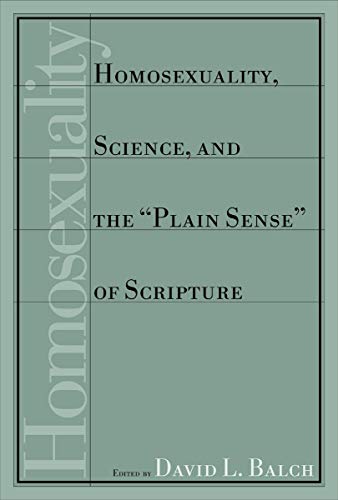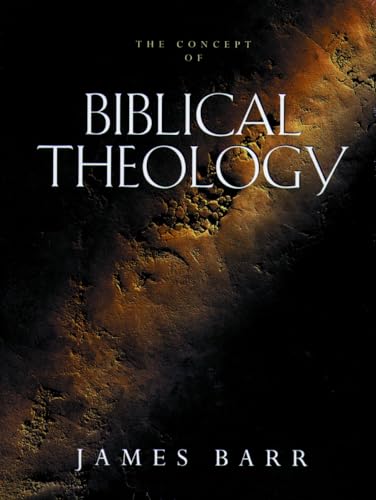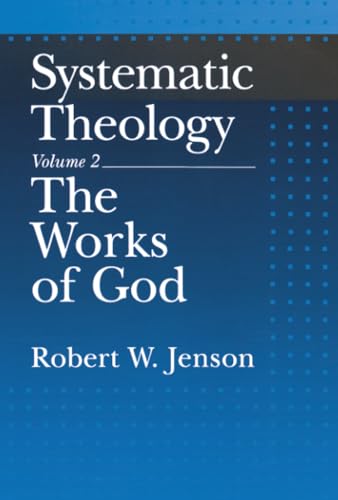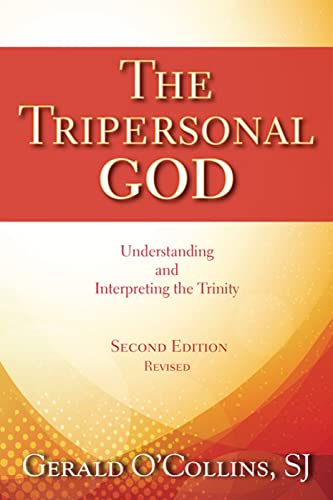Volume 26 - Issue 2
Warranted Christian Belief—A Review Article
By Daniel HillThe central question in the philosophical field of religious epistemology is ‘In virtue of why is religious belief intellectually acceptable, if it is?’. The traditional answer to this, going all the way back to Aquinas and beyond, was that one had to produce arguments or evidence for one’s religious (and other) convictions, and the intellectual acceptability of one’s religious beliefs would stand or fall according to the strength or weakness of one’s arguments or evidence. About 20 years ago a startling new idea was aired by some philosophers associated with the Centre for Christian Studies at Calvin College. Michigan (the college of the Christian Reformed Church in the USA). The leaders of this group were Alvin Plantinga, then Professor of Philosophy at Calvin College, now Professor of Philosophy at the University of Notre Dame. Indiana; Nicholas Wolterstorff then also Professor of Philosophy at Calvin College, now Professor of Philosophical Theology at Yale University; and William Alston, who has recently retired as Professor of Philosophy at Syracuse University, New York. The new idea was that there was no need for a believer to base his or her religious beliefs on reasons or arguments in order for them to be intellectually acceptable; in the jargon, religious belief may be ‘properly basic’. It was a commonplace of philosophy that it was not required that one have reasons for every belief one holds, or else one would be faced with a vicious circle or an infinite regress. So one must, to be rational, hold some of one’s beliefs without reasons, i.e., as properly basic beliefs. Plantinga, Wolterstorff and Alston claimed that belief in God and Christian belief could legitimately count amongst these basic beliefs. Their view became known as ‘Reformed epistemology’, picking up on what Nicholas Wolterstorff characterises as ‘one of the characteristic differences between the Reformed and the Anglo-American Evangelical traditions of Christendom’, viz. that ‘Reformed persons have no taste at all for undergirding the Christian faith with evidences. Yet they are deeply committed to expressing their faith by way of theorising. Evangelicals have little taste for expressing the faith by way of theorising. Yet they are profoundly committed to assembling evidences to undergird the faith.’ (The Reformed Journal 31, April 1981).
Now, 20 years later. Reformed epistemology has reached its apogee in the publication of Alvin Plantinga’s magnum opus, Warranted Christian Belief (hereafter WCB). This is the final volume of his trilogy on warrant, which he defines as that ‘quality or quantity, (perhaps it comes in degrees), whatever precisely it may be, enough of which distinguishes knowledge from mere true belief’ (WCB, 153), following Warrant: The Current Debate (OUP, Oxford, 1993), hereafter WCD, and Warrant and Proper Function (OUP, Oxford, 1993), hereafter WPF. WCB, as its title suggests, is devoted to the application of Plantinga’s views on warrant to the consideration of the epistemic status of Christian belief. It approaches this topic from two distinct angles: first, Plantinga argues against every objection he can find to the epistemic acceptability of Christian belief, even Christian belief that is not based on reasons or arguments, arguing for the conclusion that there is no viable objection to its epistemic respectability which is not also an objection to its truth. Here Plantinga presupposes nothing about the truth of Christianity, rather, this is a project in negative apologetics. Secondly, Plantinga discusses a particular way in which a Christian could think of his or her beliefs as having positive epistemic status, even if they are not based on reasons or arguments; this project does presuppose the truth of Christian belief, it is an essay in Christian philosophy. The rigorous and detailed discussion (extending to two type faces: standard for the rigorous, and small for the really rigorous) of the 508 pages of this massive book is enlivened by Plantinga’s ready wit and refreshing choice of examples—those familiar with Plantinga’s previous works will be pleased to see more examples taken from the author’s hobby of mountain-climbing and from his (distant) relative Feike, the Frisian.
Plantinga begins by distinguishing two objections someone might have to theistic or Christian belief—the de facto objection that the belief is false and the de jure objection that the belief is intellectually unacceptable. In WCB Plantinga deals with the de jure objection, seeking to show that the sort of person who says ‘Well, I don’t know whether Christian belief is true (after all, who could know a thing like that?), but I do know that it is not intellectually acceptable’ himself or herself holds a rationally untenable view. After spending Part I of the book clearing the decks of the objection that there is no such thing as belief in God, showing that both Kant and, more recently, John Hick and Gordon Kaufman have given us no reason to believe that theistic or Christian belief is impossible, Plantinga turns his attention to the elucidation of the objection: in virtue of what could theistic or Christian belief be rationally unacceptable? He distinguishes three candidates for reconstructing the objection: that theistic or Christian belief is unjustified, that it is irrational internally or externally, and that it is unwarranted.
Plantinga deals first with the complaint that theistic or Christian belief is unjustified, which he interprets as the objection that theists or Christians are not conforming to their intellectual duties in believing in God or Christianity. Plantinga doesn’t say in WCB what our intellectual duties are, since he has briefly discussed this in WCD, but he thinks that it is just obvious that a theist or Christian is not contravening any intellectual duty in believing in God or Christianity, even if he or she holds these beliefs as basic, i.e., without any (propositional) evidence.
Plantinga thinks that the de jure objection to theistic or Christian belief based on justification is much too easy to rebut, and so he turns his attention to another candidate in his search for a viable de jure objection, viz. the objection that belief in God or Christianity is irrational. Here he discusses various concepts of rationality, fastening on the concept of rationality as proper function, on which concept ‘irrationality’ means malfunction or dysfunction of the rational faculties. He then distinguishes internal rationality from external rationality. He defines (110) internal rationality as being a matter of proper function of all belief-producing processes ‘downstream’ from experience, including forming or holding the appropriate beliefs in response to experience, holding a coherent set of beliefs, drawing the right inferences when the occasion arises, making the right decisions with respect to courses of action, preferring to believe what is true, and looking for further evidence when appropriate. Plantinga argues that the de jure objection couched in terms of internal rationality is also too easy to rebut. If somebody’s experience includes it strongly seeming to him or her that theism or Christianity is true then obviously, he says, he or she is internally rational in believing in God or Christianity, indeed, he or she would be internally irrational not to believe in Christianity.
Searching for a more challenging objection, Plantinga turns to external rationality, which he defines (246) as proper function of the cognitive faculties ‘upstream’ from experience, i.e., with respect to formation of the right kind of experience (112). Plantinga concedes that there is a prima facie plausible objection to theistic or Christian belief if one interprets the de jure objection as alleging that theistic or Christian belief is externally irrational. But, Plantinga says, warrant includes external rationality, so he considers the de jure question in terms of warrant, and thereby also disposes of the question in terms of external rationality.
For this reason Plantinga turns to warrant, which, as mentioned above, he has defined as that thing enough of which turns a true belief into knowledge. Plantinga’s central claim here is that a belief has warrant or is warranted if and only if (roughly) it is produced by cognitive faculties that are functioning properly in an appropriate environment according to a design plan successfully aimed at the production of true beliefs. Here he builds on WCD and WPF. Plantinga then claims that the de jure objection, and, in particular, Freud’s and Marx’s complaints about theistic or Christian belief are best interpreted as versions of the de jurecomplaint that theistic or Christian belief is unwarranted. Freud, he says, alleges that theistic belief is produced by wishful thinking—a cognitive process which is not aimed at truth, though it is working properly. For Marx theistic belief is produced by cognitive processes aimed at truth, but which are not functioning properly, because they are perverted by the unjust social structure in which they are situated. Plantinga points out that neither Freud nor Marx offers much in the way of an argument for either of these claims, and each seems to presuppose the falsehood of theism.
Plantinga then makes his major claim of the book: that the de jure objection to theistic or Christian belief is not independent of the de facto objection to theistic or Christian belief. Hence the view that theistic or Christian belief is unwarranted presupposes that theism or Christianity is false. Plantinga argues for his position by claiming that if theism or Christianity is true then very likely theistic or Christian belief is warranted, and argues for this by giving a possible explanation or ‘model’ of how it could be that theistic or Christian belief is warranted. This explanation presupposes the truth of theism or Christianity, but Plantinga’s point is that an attempt by the objector to show that theistic or Christian belief is unwarranted has to show that the explanation he gives is false, and, he claims, this can’t be done. Plantinga doesn’t try to show that his explanation is true, merely that it is true for all we know, in particular, that the objector can’t show that it isn’t true, and can’t give any cogent objections to it which aren’t also cogent objections to the truth of theism or Christianity. Plantinga also says that if theism or Christianity is true then something very like his explanation is true. He then concludes that there is no version of the de jure objection which is independent of the de facto objection, and hence the person, described above, who says ‘Well, I don’t know whether Christian belief is true (after all, who could know a thing like that?), but I do know that it is not intellectually acceptable’ does not have a rationally tenable position. Plantinga then says (191) that ‘a successful atheological objection will have to be to the truth of theism, not to its rationality’.
Plantinga then gives his explanation or model, which is, for theistic belief, that God has created each of us with a natural faculty, the sensus divinitatis, similar to our other natural faculties (perception, memory, reason) which in appropriate circumstances directly creates theistic belief in us without those beliefs resting on any propositional evidence. Plantinga calls this ‘the Aquinas/Calvin, or A/C, model’, claiming to derive it from Aquinas’ Summa Theologiae and Calvin’s Institutes of the Christian Religion. On the A/C model theistic belief is produced by cognitive faculties functioning properly (as their designer, God, intended) in an appropriate environment (that for which they were designed—life on Earth) according to a design plan successfully aimed at truth (we can presume that God does not make mistakes and wants us to form true beliefs about him). Hence theistic belief has warrant, and, if held with sufficient strength and is true, constitutes knowledge. Where does this leave atheistic belief? Plantinga says on page 186: ‘Failure to believe can be due to a sort of blindness or deafness, to improper function of the sensus divinitatis. On the present model, such failure to believe is irrational, and such withholdings lack the analogue of warrant.’ So atheistic belief and even lack of theistic belief appear to be universally irrational (since the sensus divinitatisis universal, and, presumably, because the universal design plan would never prescribe withholding theistic belief). Where does this leave non-basic theistic belief, i.e. belief in God which is based on arguments or propositional reasons? The sensus divinitatis produces theistic belief as a basic belief, so if one believes in God only non-basically, it looks as if the sensus divinitatis is not functioning properly, and that therefore one’s failure to believe in the basic way is also externally irrational and lacks the analogue of warrant.
Plantinga then turns to the defence of Christian belief. This the reviewer found more ambiguous. The centrepiece is the ‘internal instigation of the Holy Spirit’ or ‘IIHS’, which ‘reveals to our minds and seals on our hearts’ basic beliefs (i.e., beliefs which are not based on (propositional) arguments or reasons) in ‘the great things of the gospel’, that is ‘trinity, incarnation, Christ’s resurrection, atonement, forgiveness of sins, salvation, regeneration, eternal life’ (241). This set of basic beliefs is identified with faith by Plantinga, though he unhelpfully uses the term ‘faith’ to denote both Christian belief and the process of forming that belief. The idea seems to be that the Holy Spirit acts when (and only when?) one hears the biblical testimony either directly from reading the Bible or indirectly (e.g., through preaching). What is ambiguous is the source of the warrant for the Christian belief in question: is it Scripture, the IIHS, testimony, or some combination of these? In any case, questions similar to those concerning theism arise here concerning the epistemic status of belief that theism is true yet Christianity is false on the one hand, and non-basic Christian belief on the other, with one crucial difference: the internal instigation of the Holy Spirit is not universal.
Plantinga claims that Christian belief is produced by cognitive processes (at least the IIHS) functioning properly (since it is the direct action of the Holy Spirit it can’t fail to function properly, (246, fn. 10)) in an appropriate environment (the Holy Spirit would not choose an inappropriate one) according to a design plan successfully aimed at the production of true belief (the Holy Spirit does not make mistakes and wants us to form true beliefs). Christian belief is therefore warranted, and, if held sufficiently strongly, warranted sufficiently to constitute, if true, knowledge. One disanalogy between the sensus divinitatis and the IIHS is that, since the first but not the second is universal (at least to start with) a failure to believe the deliverances of the first renders the atheist irrational, but the theistic non-Christian need not be irrational if he or she has not had the IIHS.
In the final part of the book, Plantinga turns his attention to defeaters for theism or Christianity. A defeater for a belief is another belief such that when one comes to believe the defeater one may not rationally continue to hold the first (‘defeated’) belief. One of the first complaints Plantinga considers is the complaint of Historical Biblical Criticism that we cannot deduce from Scripture in the accepted scientific-historic manner Christian beliefs. The response is that deduction from Scripture in the accepted scientific-historic manner is not the source of warrant for the believer, and so the purported defeater is irrelevant.
Plantinga then considers and rejects alleged defeaters from postmodernism, before turning to pluralism, arguing that the objection that, given the plurality of religions, Christianity’s probability is low, is irrelevant since the Christian does not believe and derive his or her warrant from the balance of probabilities. Plantinga then considers the idea that one is not warranted if one holds basically a belief with which others disagree, replying that such an idea is unwarranted by its own lights, and that we have no reason to believe it. Plantinga argues that there is no duty to withhold basic belief in the face of disagreement, and although it might be warranted for the objector to withhold Christian belief, the Christian knows that he or she has a source of warrant the objector lacks, the IIHS. Finally Plantinga turns to the alleged defeater of suffering and evil. Here, since the objection that God and evil are logically inconsistent has been largely abandoned by philosophers, he considers only the claim that the existence of evil and suffering is much more probable with respect to atheism than theism and so our belief in the existence of evil and suffering gives us a reason to give up theism. Plantinga replies that this principle applies only to beliefs which derive their warrant probabilistically from other propositions, which is not so for theism or Christianity.
Finally, Plantinga considers the view that atheism is properly basic when one sees the existence of evil. His response seems to be that the warrant for theism for the Christian is much greater than that for atheism—in particular, that the sensus divinitatis renewed by the activity of the Holy Spirit affords a much stronger impulse to believe in God than the perception of evil does to disbelieve, since a Christian ‘has such a defeater only if it is part of our cognitive plan to give up theistic belief in those circumstances; and we have no reason to think that it is’ (491). But if this were a good answer to the objection, then surely it would thereby rebut every possible defeater against theism or Christianity? Shouldn’t one rather be looking at under what general conditions the design plan legislates for the giving up of any sort of basic belief?
WCB is rich in incidental detail. Plantinga gives in passing an extremely interesting argument that atheism is self-defeating. He claims that one who doesn’t believe in God has no reason to believe that his or her belief-producing faculties are reliable, and so has a defeater for every belief he or she holds. Plantinga dismisses the evolutionist’s reply arguing that ‘the fact that my behaviour (or that of my ancestors) has been adaptive […] is at best a third-rate reason for thinking my beliefs mostly true and my cognitive faculties reliable’ (235). But the reviewer is not convinced that this response is sufficient to silence the evolutionist: surely those who have true beliefs about the best way to survive are more likely to survive than those who have false beliefs, assuming (plausibly) that all parties want to survive?
Although Plantinga’s work is massive in scope and size and thorough in its treatment and attention to detail, one is left with some questions. Some people may think Plantinga’s thesis is too weak. Plantinga admits that parallel models to the one he has devised for Christianity could be constructed for ‘Judaism’ Islam, some forms of Hinduism, some forms of Buddhism, some forms of American Indian religion’ (350). Now it seems to the reviewer that adherents of these religions, except possibly Jews, will be unwarranted, on Plantinga’s definition, since their beliefs that go beyond theism and Christianity will not be formed according to a design plan successfully aimed at truth. Nevertheless, they will be able to mimic Plantinga’s defensive strategy in almost every detail, and so will be able to resist any evangelistic attempts to showthem that their beliefs are unwarranted. In disposing of the traditional model of giving arguments or evidencefor all one’s religious beliefs, Plantinga may have disposed also of an inter-subjectively agreed standard which allowed us to debate, argue, and evangelise. In creating an impregnable fortress for the rationality of Christianity, Plantinga may have done the same favour for the other theistic religions too.
Furthermore, what about those who are bare theists. i.e., those who believe in God but have no further religious beliefs? If they have never received the IIHS (which Plantinga seems to admit is not universal), then they are not unwarranted in their failure to produce Christian belief. So the Christian should not evangelise such people by trying to demonstrate their irrationality, for they are not irrational. It seems that all the Christian can do is to pray that the Holy Spirit should work in them. But then may the bare theist be blamed and justly damned for failing to believe if he or she has not experienced the IIHS?
On the other hand, some may think that Plantinga’s thesis is too strong. In particular, it looks as if those who believe in God or Christianity only non-basically, i.e., only on the basis of reasons or arguments, are treated too harshly. Granted that atheists are irrational, for Plantinga, because of their failure to produce beliefs based on the sensus divinitatis, is it right to account also those who do believe, but do so only on the basis of arguments, irrational because they fail to believe basically? Plantinga says (186) that those who do not believe on the prompting of the sensus divinitatis are irrational, this includes, presumably, even those Christians who do not do so, preferring to believe instead on the basis of arguments, yet in footnote number 15 on page 179 he writes: ‘Of course it doesn’t follow that theistic belief can’t get warrant by way of argument from other beliefs’. This implies that those who do believe on the basis of arguments and (propositional) reasons would be warranted in believing non-basically and simultaneously unwarranted in their failure to believe basically. As for specifically Christian belief, Plantinga claims on page 255 that, given the experiences that go with the testimony of the Holy Spirit, it would be dysfunctional not to form Christian beliefs, and presumably dysfunctional not to form them in the basic way, i.e., without (propositional) evidence or argument. He also says that arguments for the ‘full panoply of Christian belief’ would be ‘vastly too tenuous and speculative’, and beliefs formed on the basis of arguments should be ‘equally halting and tentative’ (267). On the other hand, on page 250 Plantinga says:
In the model, the beliefs constituting faith [i.e., Christian belief] are typically taken as basic […]. Of course they could be accepted on the basis of other propositions, and perhaps in some cases are. […] A believer could reason in this way, and perhaps some believers do in fact reason this way. But in the model it goes differently.
But doesn’t it seem a bit harsh if these same people are to be counted irrational in virtue of the fact that they do not believe on the basis of the IIHS, but rather in a non-basic way?
1 Peter 3:15 says ‘Always be prepared to give an answer to everyone who asks you to give the reason for the hope that you have’. If one believes basically, one can’t truthfully give the reason on account of which one believes because there isn’t one. One may, of course, give reasons for one’s belief, but why does the apostle ask us to do this if it is in fact better to believe without reasons, i.e., basically? Because that way we may convert those who don’t believe at all? But if people are converted on the basis of reasons, then, according to Plantinga, their faith will be ‘halting and tentative’ (267). Granted they could come to believe on the basis of reasons and then graduate to believing basically—but why should the apostle commend such a scheme?
These are very difficult and involved questions, and it should be repeated that Plantinga has done the Christian community an invaluable service by giving an explanation or model of how Christian belief could be unassailably rational, and by rebutting almost every conceivable objection to it. WCB will consolidate Plantinga’s reputation as the world’s foremost Christian philosopher, and it has already been acclaimed as a classic of philosophy of religion.
Daniel Hill
University of Liverpool






